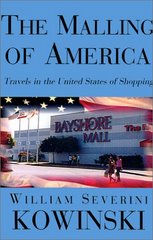Here in the far northwestern region, we live along the Pacific Ocean coast, along rivers such as the Klamath and Eel, and among rugged mountains, vast forests, deep valleys and fertile flatlands. Redwood and Douglas fir, madrone and pines, oaks and maples fill our forests. Flowers and edible plants as well as those used in basketry once grew in great profusion, and are still present in some abundance. Multiple species of eagle, hawk, hummingbird, salmon, bear, wolf, fox, cat, dog, rabbit, squirrel, elk, deer and antelope were (and to some degree remain) present in daily life, as well as the more local and exotic species the region hosted, such as the alpine chipmunk, snowshoe rabbit, bighorn sheep and yellow-haired porcupine; the osprey, the wolverine, condor, and cougar.
All of this is directly reflected in foods, materials used for implements and shelter, stories, ceremony and many other ways. A lot of these influences are easy to see once they are pointed out, but a less obvious and more difficult one is the relationship to language.
Recently Cheryl Seidner (elected chair of the Wiyot tribe at Table Bluff) commented to me that the Wiyot don't have a word for "tree." They have words for many kinds of trees, in various states and stages. But they didn't conceptualize "tree" as a general or generic term, which tells us a lot about how specific and thorough their knowledge was, and also about relationship. The use of "tree" in non-Native language suggests they are objects rather than individuals or members of a species. For one thing, this makes it easier to categorize them as commodities, according to how profitable they are.
Here is some of what I learned from Julian Lang and others, in person and in my reading: The language of each tribe was derived from where they lived, and their experience in relationship with that land, with its creatures and weather, its plants and seasons. The places and their experiences formed the very structures of these language in ways that is difficult to understand for those raised with a language that has a very different history of development, such as English.
Native scholars have documented this aspect of Native languages. Often the words are based on sounds from the specific natural setting. (The name of a particular bird, for instance, may be based on the sound that bird makes.) The structures of words themselves reflect ways of relating to the world that is different from the world view that forms the basis for English words, sentence structure and even the use of tenses.
These differences matter, for they reflect entire world-views. Differences in the nature of these languages when compared to English have resulted in widely influential mis-translations of Native concepts, giving the world a false or incomplete idea of Native knowledge.
Traditional practices, traditional knowledge, aboriginal geography, material and non-material culture, the stories and mythology that are the core of our identity, are all intimately related and interdependent, so that they cannot really be separated. But the basis for all of them is language.
This is a reason that preserving and reviving their languages is so important to Native peoples of the North Coast. Some tribes have few if any speakers who learned the language as children. Apart from supporting our neighbors in their efforts to revive their languages, we have a second incentive: in comparing these languages to the English American language we have in common, we will learn more about being native to this place.
There is much more about the Native North Coast on the companion blog, North Coast Texts, including a Primer on local tribes with links; reporting on the recent return of Indian Island land to the Wiyot, and more on my own experiences and interests concerning Native peoples before I got to the North Coast. See how they compare with yours.
In the meantime, some questions you might address in the Comments below could include: if you are non-Native, what were your first experiences and impressions concerning Native peoples and cultures on the North Coast? What do you, as either non-Native or Native, believe are the special contributions of our indigenous North Coast Native cultures to how we all can become native to this place?
Is the Story of Sports the Story of Injuries?
-
A lot has happened to the teams I follow in just a few weeks. The
Pittsburgh Steelers were ignominiously defeated by the Houston Oilers in
their wild ca...
4 days ago








No comments:
Post a Comment